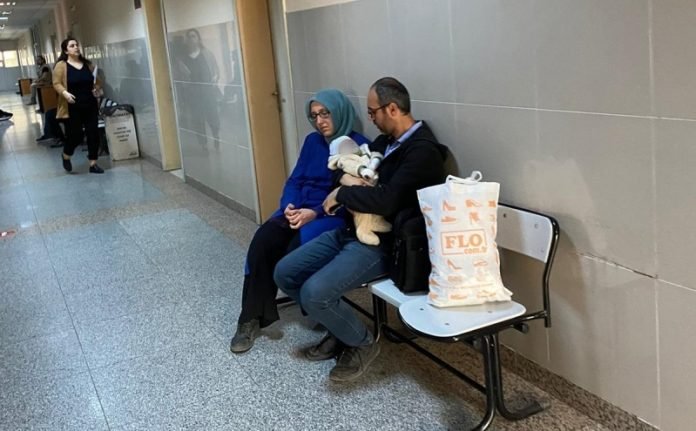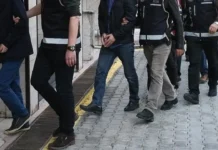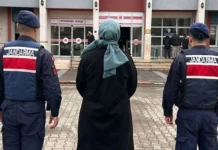Hilal Keser, the mother of a two-and-a-half-month-old infant, was sent to prison in violation of a law that requires the postponement of the execution of prison sentences for women who are pregnant or have given birth within the last year and a half, the Kronos news website reported.
Keser was arrested on Wednesday by a local court in the central province of Afyonkarahisar for providing financial support to inmates who were in prison due to alleged links to the Gülen movement, a faith-based group accused by the government of “terrorist” activities, or to their families.
According to the Law on the Execution of Sentences and Security Measures, “execution of the prison sentence is delayed for women who are pregnant or have given birth within the last year and a half.”
In another investigation, Keser had been sentenced to more than seven years in prison for working at a student dormitory in Afyonkarahisar that the government subsequently closed down because of alleged ties to the Gülen movement. She had been jailed for one year and released on appeal.
Turkish President Recep Tayyip Erdoğan has been targeting followers of the Gülen movement, inspired by Turkish cleric Fethullah Gülen, since the corruption investigations of December 17-25, 2013, which implicated then-prime minister Erdoğan, his family members, and his inner circle.
Dismissing the investigations as a Gülenist coup and conspiracy against his government, Erdoğan designated the movement as a terrorist organization and began to target its members. He intensified the crackdown on the movement following an abortive putsch on July 15, 2016 that he accused Gülen of masterminding. Gülen and the movement strongly deny involvement in the coup attempt or any terrorist activity.
The detention and arrest of pregnant women and mothers with young children have dramatically increased in Turkey in the aftermath of the 2016 coup attempt.
Human rights advocates have said children accompany their mothers in prison at very young ages, which are often critical periods in their mental and physical development. However, children are not provided basic needs such as crayons or toys. Some cells are not provided with a carpet for crawling babies, and inmates make makeshift rugs out of blankets. Many children do not have their own beds and share their mothers’ food.















